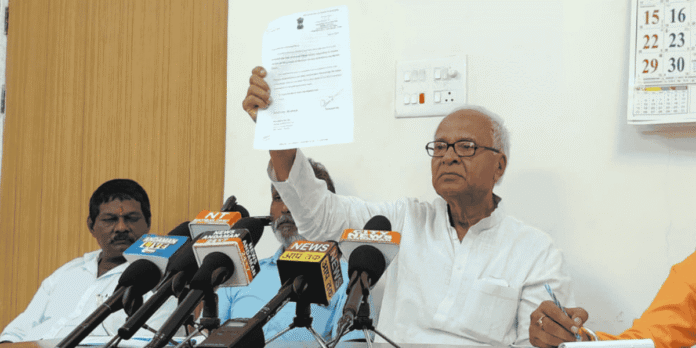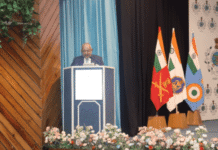In a press interaction on Thursday, Member of Parliament Bishnu Pada Ray outlined a mix of forward-looking infrastructure initiatives and administrative concerns, marking a critical juncture in the Andaman and Nicobar Islands’ development trajectory.
Ray confirmed that the long-awaited formal order for land conversion has now been issued—an update first reported by The Wave Andaman here. The move is expected to unlock pending infrastructure projects across the islands, including key logistics corridors and public utilities that had been delayed due to regulatory gridlocks. “This is a much-needed administrative milestone,” the MP stated, while urging authorities to ensure timely clearances and inter-departmental coordination.
A major course correction was also announced in the area of port maintenance. According to Ray, the responsibility for upkeep of jetties and harbours—several of which are in a deteriorating state—has been reverted to the Andaman Harbour Works (AHW). The mandate had previously been shifted to the Andaman Public Works Department (APWD), but concerns over technical competence and oversight led to the decision to restore the original arrangement. The move is being seen as a step toward reinforcing marine infrastructure through specialised agencies.
On the energy front, the MP announced that the Ministry of Power has approved the installation of a new 15 MW generator by NTPC. While no specific commissioning timeline was shared, the addition is expected to provide much-needed relief to the island’s overburdened power grid. Areas such as Sri Vijaya Puram have continued to face intermittent outages, raising demand for urgent upgrades.
Ray also raised red flags about the state of organic farming and allied sectors. He criticised the current administrative leadership for lacking domain expertise, particularly in agriculture, animal husbandry, and fisheries. Advocating for a professionalised approach, he called for the appointment of technically qualified individuals to head these departments, stating that meaningful progress in sustainable development hinges on sector-specific knowledge.
While Ray’s statements reflect policy momentum on several fronts, they also highlight persistent governance challenges. As the islands chart a course toward modernisation, questions about implementation, accountability, and institutional competence remain at the forefront of the region’s development narrative.





